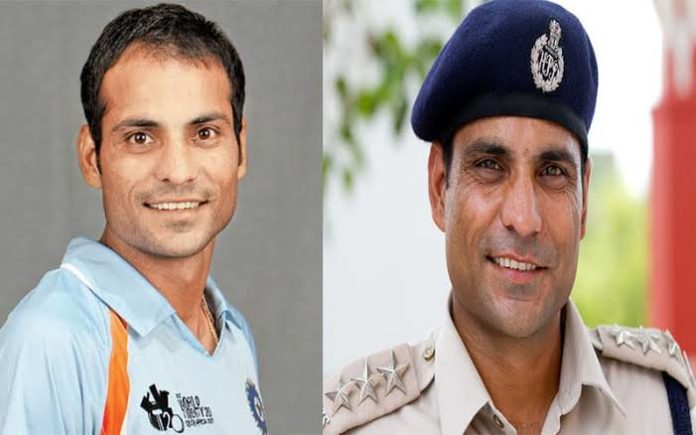Feed The Hungry, Help The Poor: Joginder Sharma
In his state of Haryana, Joginder Sharma, the former Indian cricketer, has tried hard to preserve health despite the coronavirus pandemic. The 36-year-old, who is a Deputy Police Superintendent (DSP), has been patrolling the street to make sure people abide by the orders to stay indoors. India is currently in a 21-day lockout, expected to close on April 14.
Sharma’s name is mainly remembered because he got rid of Misbah-ul-Haq in the final over the 2007 T20 World Cup against Pakistan. The veteran, however, reckons that contributions to the affected in the COVID-19 outbreak are more significant than even winning South Africa’s inaugural T20 world tournament. Sharma wishes to fulfill himself in every contribution he makes.
“This effort is certainly even greater since people are losing their lives. It was a huge thing too, winning the Indian World Cup, but we have to save the nation here. And even if I play a small part in that, then it’s massive, “Sharma was quoted in Wisden as saying.
Sharma claims that even in the current situation, like cricket, it’s just a collective effort that can work wonders. The veteran urged the netizens to avoid social events, instead of asking them to support the needy and the poor.
We Have To Help Each Other:
“It was my sport’s essence which is a team game and players are working together to make things happen. So now we have to support each other and remaining inside our homes would be the greatest boost. Only this is the way to counter coronavirus. Feed the hungry and aid the needy. Say no to social events, just go out to get important but keep the social distance, “he added.
In the crisis situation, Sharma wants to use his reputation in cricket to connect with men. “People know me and remember me, and that helps to drive my point across. But now I am a policeman and that’s my job, “he added.
In India, the cases of coronavirus have risen to 1,251 with death tolls of up to 32. More than 100 people are recovering from the deadly disease. The incidents have gone past 7.84,000 worldwide, with 37,780 deaths.


